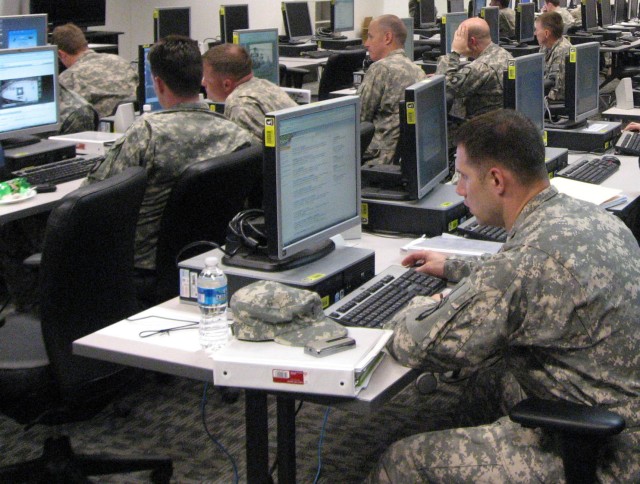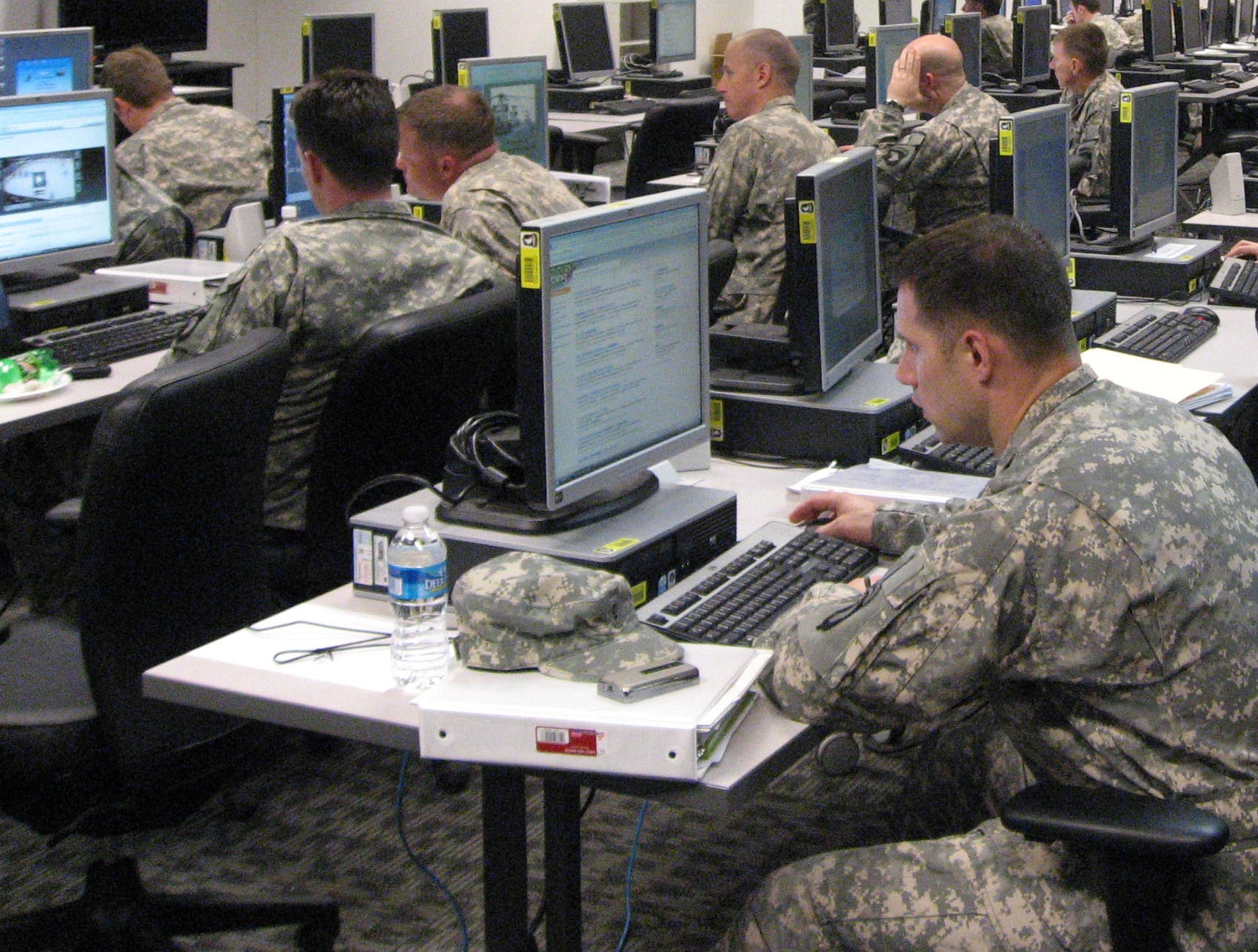
FORT RUCKER, Ala. -- A new Mobile Training Team allows some Aviation Warrant Officer Advanced Course students to participate in training from their home stations instead of traveling to attend the course here.
The course, conceived as part of the U.S. Army Aviation Center of Excellence and Fort Rucker Leading Change Initiative, was first offered Jan. 7 at Fort Drum, N.Y., and has since expanded to Fort Campbell, Ky., and Fort Hood, Texas, said Course Chief CW4 Chris Janis.
Because of ongoing war efforts and high operational tempos, many Soldiers simply don't have time to travel to all mandatory education, leaders said. MTTs eliminate that problem by educating troops where they live.
"When they're home for a short amount of time, they want to spend time with their Families. Our contribution to the fight is we go there," said Maj. Lee Ambrose, A Company, 1st Battalion, 145th Aviation Regiment commander, which AWOAC falls under.
MTT has also increased student output exponentially, said Lt. Col. Mikael Ash, 1st Bn., 145th Avn. Regt. commander. The Adams Hall classrooms can support about 32 Soldiers, while MTTs include up to 64. MTTs run in conjunction with residency classes here, meaning the student load is increased drastically each session.
"We're constantly trying to improve what's provided to the warfighters," Ash said.
Finally, it costs less to transport four instructors somewhere temporarily than to bring dozens of Soldiers here for training, saving the Army resources, Janis noted.
The 38-day program teaches Aviation Soldiers general Army and Branch specific subjects, said CW4 Jeffrey Ylitalo, an AWOAC small group instructor. Soldiers attending the course are usually maintenance test pilots, safety officers, instructor pilots, unmanned aircraft systems officers or air traffic controllers.
It prepares senior chief warrant officer twos and new chief warrant officer threes for battalion staff positions or higher, Ambrose said.
"We've tailored (AWOAC) for (Soldiers) at the chief warrant officer 2 level - with at least two years (experience) - up to those with about five or six years (experience)," Janis said. "It's designed to teach them the skills they need to prepare them for the next five or six years."
The training received at other installations mirrors what Soldiers attending AWOAC here receive, officials said. While not all guest speakers join MTTs, instructors offer all Soldiers the same education, using video teleconferences to merge Fort Rucker and off-site locations, Janis said.
Ylitalo participated in two MTTs, rotating with fellow AWOAC instructors. He said he believes MTTs offer new opportunities and are beneficial to the Aviation Branch.
"The professional military education is facilitated in greater numbers," Ylitalo said. "PME is important to officers' successful careers and getting ready for more senior positions. It offers interaction with greater groups of people."
He said all AWOAC students participate in written case studies and presentations as part of the course. They also undergo regular classroom training and learn general communication skills, counterinsurgency operations and hands-on computerized program training.
While part of the team's mission is to allow Soldiers more time with their Families by erasing unnecessary travel, it means instructors here have to leave their loved ones for periods of time. Even so, Fort Rucker instructors aren't deployable like the servicemembers they teach, and they are willing to make small sacrifices to help others.
"We're very happy to leave home to teach," Ylitalo said. "Nobody here has a problem going out and instructing."
MTT has trained 181 students since January, Ambrose said. They plan to train another group at Fort Hood this fall, and about 300 more during fiscal year 2011, he said.
Future MTT sites include Fort Bragg, N.C., Germany and Hawaii, Janis said, with two other locations to be announced later.
Ambrose said he hopes it benefits Soldiers here and worldwide.
"(It uses) the common sense approach. It gives our instructors here time to plan Family vacations, and things of that nature," he said. "Armywide, we're providing five prescheduled MTT dates. We're anticipating needed dates (before units call us)."
Some other Army branches implement similar MTT programs, Ash said, but he noted not all organizations conduct off-site training in conjunction with residency courses.

Social Sharing